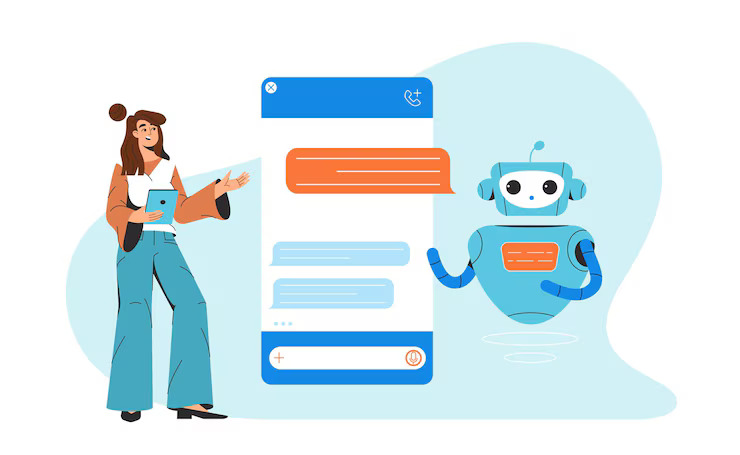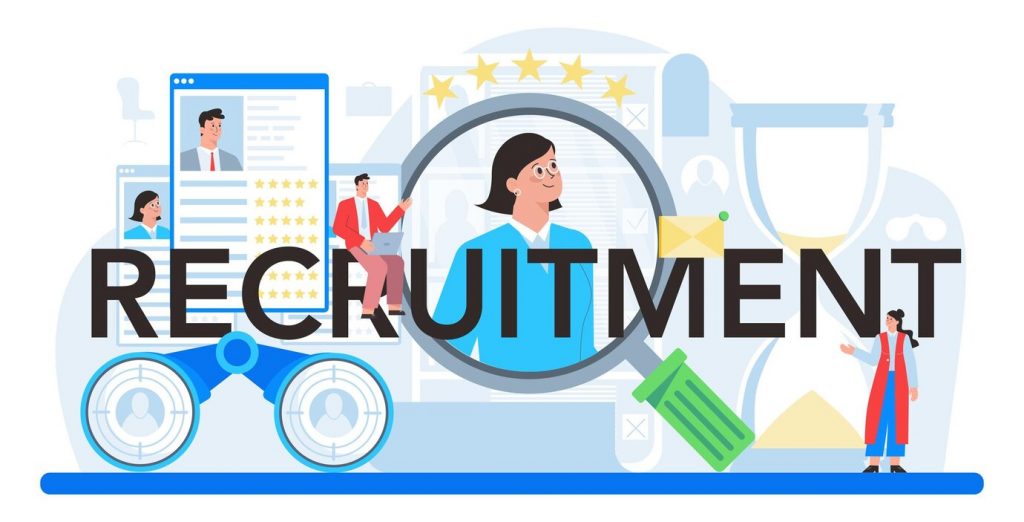Introduction
Recruitment is no longer just about scanning resumes or scheduling interviews. In today’s hyper-competitive talent economy, sourcing the right candidate faster and more accurately is a game-changer. As global workforces become more distributed and roles increasingly complex, the traditional methods of hiring fall short. Organizations are now looking to Artificial Intelligence (AI) to radically transform how they identify, evaluate, and onboard talent.
According to LinkedIn’s Global Talent Trends report, 67% of hiring managers say AI saves them time, and 43% claim it removes human bias from hiring decisions. In a world where hiring the wrong employee can cost up to 30% of that person’s annual salary (U.S. Department of Labor), mastering AI tools for candidate sourcing and shortlisting is no longer optional—it’s a strategic imperative.
This blog unpacks how AI is reshaping talent acquisition and what it means for both employers and candidates. We explore tools, strategies, and future trends while grounding our insights in data and real-world case studies. And yes, we’ll show how platforms like JobTwine are already leading this charge.
Also Read: Fostering Diversity Through AI-Powered Interview Intelligence
Why Use AI for Candidate Sourcing?
Recruiters are under increasing pressure to fill roles faster, better, and more fairly. Manual sourcing is slow, often biased, and inefficient when dealing with high-volume or niche positions. Enter AI: a tool that augments human decision-making with scale, speed, and objectivity.
Key Benefits:
1. Speed and Efficiency
AI enables sourcing across thousands of profiles in minutes. IBM found that companies using AI-driven recruitment tools cut hiring time by up to 30%.
2. Data-Driven Decisions
Rather than relying on gut instinct or resume keywords, AI systems analyze candidate data against performance benchmarks, increasing accuracy in candidate fit.
3. Reduced Bias
AI can help minimize unconscious bias by focusing on skills and qualifications. Tools like HireVue and Pymetrics use neuroscience and video analytics to level the playing field.
4. Cost Savings
ManpowerGroup estimates that companies using AI reduce recruitment costs by up to 35% annually, freeing up HR budgets for strategic initiatives.
5. Talent Pool Expansion
AI identifies passive candidates through online behaviors, social media signals, and resume databases, casting a wider net.
Also Read: Interview Intelligence vs. Traditional Hiring: Which Approach is Right for You?
How AI Improves Candidate Shortlisting
Shortlisting is often where good candidates are lost. Overwhelmed recruiters may skim resumes, missing valuable signals. AI ensures no potential hire falls through the cracks.
Automated Resume Screening
Modern AI tools read and rank resumes based on relevance to job descriptions, past performance, and contextual data. According to Ideal, automated resume screening can improve shortlist quality by up to 75%.
Predictive Analytics
AI algorithms can predict candidate success based on historical hiring data. Companies like SAP and Unilever use AI to correlate candidate traits with on-the-job performance, leading to higher retention and productivity.
Skill and Culture Matching
Platforms such as JobTwine use AI to evaluate not only hard skills but also behavioral and cultural fit, using simulation-based assessments. This improves both quality of hire and team cohesion.
Candidate Communication
AI-driven chatbots maintain engagement, answer FAQs, and schedule interviews. According to Allegis Group, 66% of candidates are comfortable interacting with AI during recruitment if it improves the experience.
Also Read: Key Interview Intelligence Trends to Look Out for in 2025
Popular AI Tools for Sourcing and Shortlisting
With the proliferation of AI recruitment platforms, choosing the right tool depends on your goals, company size, and workflow preferences.
Leading Tools in the Market:
1. JobTwine
JobTwine redefines how interviews are conducted. Instead of spending hours on manual processes, JobTwine automates every critical stage:
- Customizable Playbooks: Prebuilt or editable interview flows aligned with job roles.
- AI Copilot: Automatically aligns questions with required skill sets.
- JayT Agent: An autonomous avatar that conducts or co-pilots interviews.
- Auto-generated Evaluation: Real-time scoring and insights powered by AI.
- AI Feedback Engine: Delivers real-time transcription, tagging, and summarization.
- Auto Debrief Reports: Aggregated insights from all interview rounds.
- Case Study: A mid-sized SaaS firm reduced time-to-hire by 40% and improved new hire retention by 25% using JobTwine.
2. HireVue
- Video interviews with AI scoring
- Voice, facial expression, and word choice analytics
3. SeekOut
- Deep sourcing across social platforms, GitHub, and research networks
- Diversity filters and talent mapping
4. Pymetrics
- Neuroscience-based gamified assessments
- AI matches candidate potential to job demands
5. Eightfold.ai
- Deep learning for resume matching
- Career path modeling and internal mobility suggestions
Tool Comparison:
|
Tool |
Best For |
Unique Feature |
|
JobTwine |
Mid-size to enterprise firms |
End-to-end AI interview automation |
|
HireVue |
Large enterprises |
Video-based AI evaluations |
|
SeekOut |
Tech roles & diversity hiring |
Talent mapping |
|
Pymetrics |
Graduate & entry roles |
Gamified potential assessment |
|
Eightfold.ai |
Large, global organizations |
Career path and mobility analytics |
AI-Powered Sourcing Strategies for Recruiters
AI doesn’t just automate; it strategizes. The key lies in aligning your sourcing tactics with what the technology excels at.
Smart Outreach
AI tools can identify passive candidates based on web behavior and personalize outreach based on professional history. Platforms like XOR use NLP to draft customized messages that boost response rates by up to 50%.
AI Chatbots for Screening
Chatbots like Mya conduct initial screenings, qualify candidates, and reduce drop-offs by keeping engagement high.
Integration with ATS
Integrate AI tools with your Applicant Tracking System (ATS) to unify sourcing and shortlisting workflows. This reduces duplication, improves data accuracy, and enables smoother handoffs.
Best Practices
- Set clear sourcing criteria and train AI tools accordingly
- Use structured interview frameworks alongside AI (JobTwine offers customizable templates)
- Regularly audit AI suggestions to ensure relevance and fairness
Also Read: What is an Interview Intelligence Platform? A Guide for Modern Recruiters
Potential Challenges & Ethical Considerations
While AI offers immense value, it’s not a silver bullet. Responsible implementation is key.
Data Privacy & Security
Recruiters must comply with GDPR, CCPA, and other data regulations. Ensure tools have encryption, access controls, and transparency in data usage.
Algorithmic Bias
Ironically, poorly trained AI can amplify human biases. In 2018, Amazon discontinued its AI hiring tool after discovering it penalized resumes containing the word “women’s.” Continuous monitoring and diverse training data are essential.
Lack of Transparency
Candidates may be uncomfortable with AI-driven decisions. Providing explainability on why a candidate was or wasn’t selected builds trust.
Human + AI Synergy
AI excels at data parsing; humans excel at empathy and judgment. The best recruitment systems combine both for optimal results.
Also Read: How to Improve Diversity and Inclusion with AI Recruitment Tools?
Conclusion: The Future of AI in Talent Acquisition
AI is not just a trend; it’s a tectonic shift in recruitment strategy. For employers, it means faster, smarter, and fairer hiring. For candidates, it creates more equitable opportunities and better experiences.
As organizations prepare for the future of work, integrating AI into sourcing and shortlisting is a competitive necessity. Tools like JobTwine exemplify this transformation by blending AI-powered assessments with human insight, reducing hiring guesswork and optimizing outcomes.
Looking ahead, the next frontier includes:
- Voice-based candidate profiling
- Deep integration with Learning & Development systems
- AI-driven diversity benchmarking
Recruiters who master these tools today will shape the workforce of tomorrow. The future of hiring isn’t just digital—it’s intelligent.
Also Read: Talent Acquisition with AI: A Comprehensive Guide
Frequently Asked Questions:
1. What is AI candidate sourcing?
It’s the use of Artificial Intelligence to identify, evaluate, and engage potential job candidates from internal and external data sources.
2. Can AI remove bias from recruitment?
AI reduces some human biases, but it must be trained on diverse, unbiased data and continuously monitored for fairness.
3. Is AI shortlisting more accurate than manual methods?
Yes. Studies show AI-based shortlisting improves candidate-job fit by up to 75% compared to traditional resume reviews.
4. What role does JobTwine play in AI recruitment?
JobTwine automates the end-to-end interview process, from question design to evaluation and reporting, saving over 4–6 hours of human effort per candidate.
5. Are candidates comfortable interacting with AI?
Yes. Over 60% of candidates prefer AI if it means faster responses and better transparency in the process.




